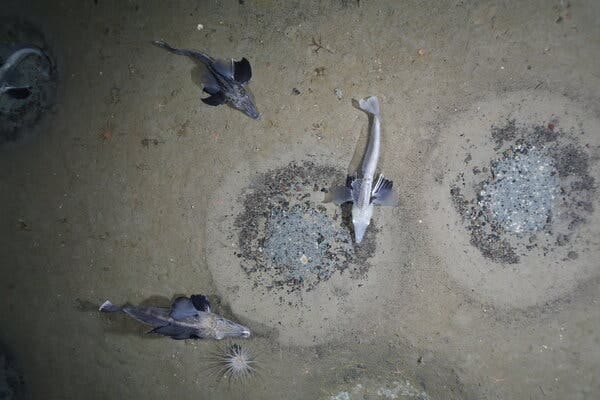Good morning!
Welcome to Digestable, your mouthful of things happening in the world.
Today’s ferments:
It’s Martin Luther King Jr. day in the US. Here are a couple of things to read, in honor:
Martin Luther King Jr. said more than 35 words by Judd Legum, on cooptation of this day by Reagan and others
Work from Home for Justice’s latest issue on the fight for voting rights, with some background from the 1619 Project
If You're A Republican Lawmaker Planning To Post An MLK Quote On Monday, Just Don't. More on the hypocrisy of conservatives “observing” this day.
And here are some strange undersea friends known as icefish:
(via)
The Second Look
Half-baked cultural criticism from Gabriel Coleman.
Drive-Thru
I’ve been exposed to a lot of #VanLife content as of late. These are “nomads” that have been ejected from or otherwise ditched the settled life of houses and apartments to live out of camper vans, trailers, or former school buses - turning to the US‘s highway infrastructure for home. From Chloe Zhao’s film Nomadland to English comedian Sue Perkins’s new show trekking around in her own van talking to nomadic influencers, putting the mobile back in mobile home seems to be in the front of the media hivemind.
Rubbernecking
I feel like I have a lot in common with the ethics of some of these vanlifers. From the minimal living and outdoorsiness of these folks to the reliance on state and federal governments for showers, sleeping space, and means to move around. A lot of these queerdos and hippies have a distinctly anticapitalist bent to their nomadic ethic, refusing to participate in a society that demands mortgage debt or exorbitant rent for any form of simple shelter. But under the hood there’s a tangle of icky implications that #Vanlife participants unwittingly inherent and wittingly foster.
First is the peacocking of soft-hardship. Many nomads undoubtedly live in poverty and take to the van as a refuge from the United States’ threadbare welfare systems but in the stories Sue and Chloe show, divorce and wanderlust are more common gateways to VanLife than eviction. Even the Nomadland protagonist Fern, played by Frances McDormand, has secure housing and food thrust at her by everyone in her life but takes to the open road as a quasi-monastic vow of poverty in order to cope with the grief of her lost husband. There’s a sharp distinction between the “houselessness” of a vanlifer and actual homelessness - showing the lifestyle as a choice rather than a means to cope with disenfranchisement, a lifestyle that Sue Perkins’ vlogging friends promote and monetize like a cottagecore wardrobe.
#VanLife has its foundations in some of the ickiest parts of so-called America’s bedrock. Most nomads live in the American west which still plays host to visions of manifest destiny and depopulated American wilderness. Beneath the Instagram caption claiming the Sierra Nevadas as a nomad’s temporary “backyard” is the idea that this unceded land is still there to be exploited. The unbearable whiteness of Chloe and Sue’s vanlifers shows exactly who is allowed to shit in the woods and sleep in roadside campgrounds without question.
Finally, the modern nomadic lifestyle itself is entirely dependent on fossil fuels. Though they may be exempt from mortgage payments, nomads are innately tied with the exploitation of people, land, and atmosphere by US backed and subsidized oil companies. The guise of independence and ease of movement falls away in the face of the massive amounts of fossil energy required to experience this uniquely American kind of freedom. Despite their proselytizing, Vanlife could only ever exist as a counterculture given that the land, energy, and infrastructure available will only support a very privileged motorized minority.
In The Rearview
I’ve been reading a bit about the period referred to as The Great Acceleration or the 1950s Syndrome - the unique era in the US (and later Europe) following WWII where economic growth skyrocketed while energy prices from fossil fuels continuously fell. Though the 70s oil crisis pumped the Great Acceleration’s brakes to some extent, we still live with the legacy of this consumption-heavy era. The United States’ continuous subsidizing of fuel prices and investment in new oil leases (offshore, arctic, and otherwise) keeps the mirage of the postwar boom alive in certain respects. The fact that it's cheaper and easier for someone to burn fossil fuels driving around the so-called United States, eating, sleeping, and shitting in a nest of auto-infrastructure, than it is to set down on a patch of land and let it sustain them is the tragic reality of #VanLife. That’s the story I’d like to see Chloe and Sue tell.



